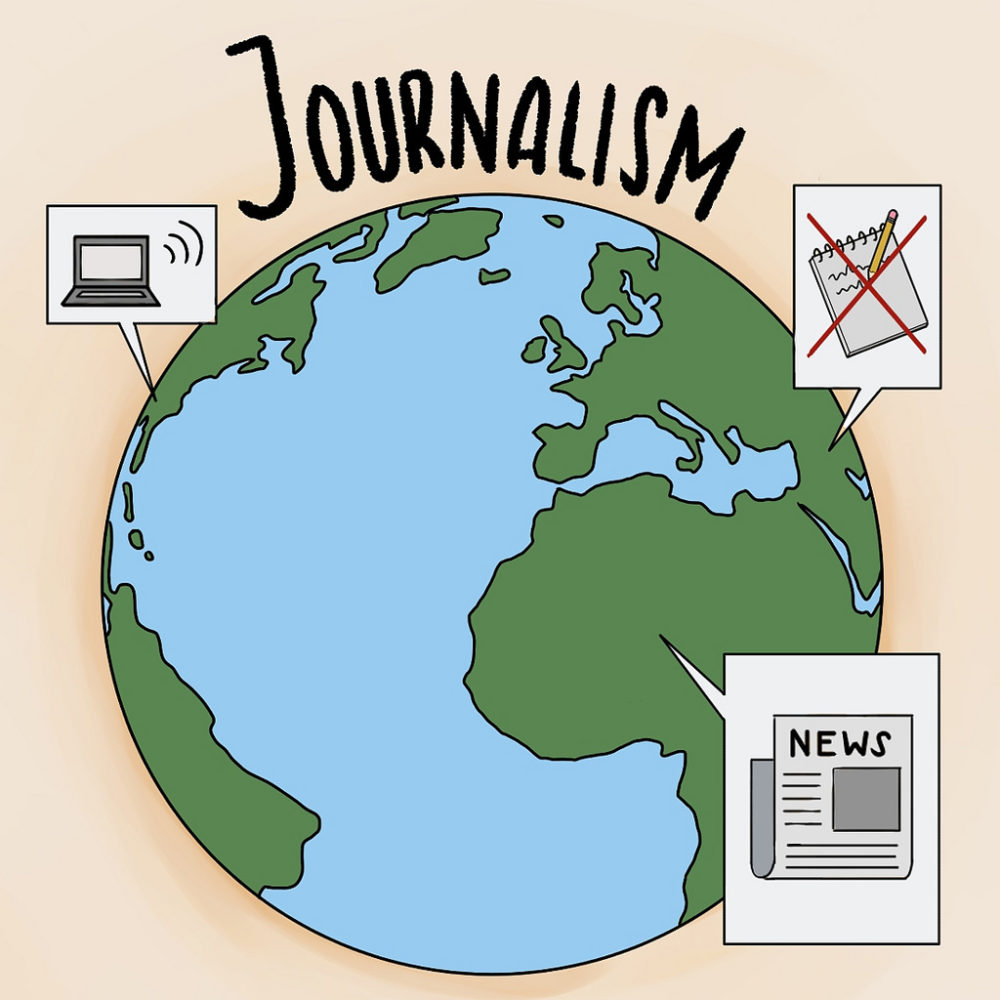
By Elise Tran, Designer-in-Chief, and Justin Hsieh, Staff Writer
News is significant in our daily lives by providing information of events occurring throughout the United States and the world. In recent times, it has become the subject of much of our public discourse in the US. The access to news varies from country to country and our national news is just one out of many different manifestations of journalism around the world.
Information on journalism around the world can be found on the website of Reporters Without Borders (RSF), a Paris-based international nonprofit that advocates for the safety and freedom of journalists across the globe. In addition to keeping a continuously updated “barometer” tallying deaths and imprisonments of journalists, RSF also publishes an annual World Press Freedom Index (WPFI) that ranks 180 countries based on the level of freedom of expression, independence, legal protection and safety they provide to journalists and media outlets. Countries are sorted into five groups: “Good Situation”, “Satisfactory Situation”, “Noticeable Problem”, “Difficult Situation” and “Very Serious Situation.” The United States is currently in rank 45, in the “Satisfactory Situation” category.
When seeing how the United States’ news system measures up against other countries, there is a remarkable number of countries with better journalistic conditions than us. At the top of the index, in the “Good Situation” category, Norway, Sweden, the Netherlands, Finland and Switzerland take the first five ranks. The Nordic countries’ dominance in the rankings reflects their sterling traditions of media freedom and empowerment. In 1776, Sweden passed the world’s first press freedom law, establishing the free press and the revolutionary principle of the public’s right of access to state-held documents. These countries have few to no incidents of violence against the media, who have consistently been protected and supported by public opinion and policy, an idyllic picture in comparison to the US, where six journalists have been arrested, 39 have been physically attacked, and five have been killed in 2018 alone.
Following the 17 countries in this first tier are the 30 countries ranked in the “Satisfactory Situation” category, led by Canada at rank 18. There, Prime Minister Justin Trudeau’s strong advocacy for a free and independent media, as well as the country’s “shield law” protecting journalists’ sources, are in direct contrast to the Trump administration’s characterization of the media as “the opposition party,” and the distinct lack of any US law protecting the secrecy of reporters’ sources. In addition to Canada, a total of five African countries and six South American countries also rank above the US.
On the other hand, an examination of the WPFI also reveals a great many countries whose standards for journalists are worse than those in the US system. These include Japan, where foreign, freelance, or “antipatriotic” journalists are subject to systematic exclusion and online harassment, and many countries in East and Central Europe, where increased pressure on the media and state interference have led countries such as Poland, Ukraine, Greece and Cyprus to fall under the “Noticeable Problem” category.
At the extreme end of the spectrum are the usual suspects of journalistic abuse. Mexico, Saudi Arabia, China, and Syria all rank in the bottom 40 countries on the list, in the black “Very Serious Situation” category. In these countries, where journalists operate against backdrops ranging from drug cartels to police states, freedom is close to nonexistent and the danger is tremendous. Most recently, the world saw the disappearance and alleged killing of Washington Post journalist Jamal Khashoggi, who often wrote critically about Crown Prince Mohammed bin Salman, at the Saudi Arabian consulate in Turkey. In the media of Saudi Arabia, headlines read “I enjoy absolute freedom, says former dissident” (Saudi Gazette) in support of the prince. There are few to no articles questioning the prince. Not only is there abuse towards journalist, but the news itself is controlled by the government. News becomes propaganda. At the very bottom of the list, in country number 180, North Koreans can be sent to concentration camps for accessing any content provided by a media outlet based outside the country.
Journalism and how it’s practiced has a huge impact on the lives of individual citizens and of communities. Freedom of press contributes to individual liberties. By understanding the achievements and shortcomings of our system in comparison to other countries, it can help identify what we need most to continue fostering a free, informed and protected populace.





